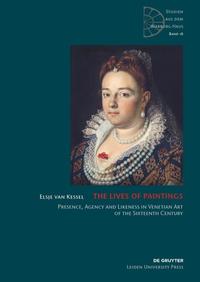
In sixteenth-century Venice, paintings were often treated as living beings. As this book shows, paintings attended dinner parties, healed the sick, made money, and became involved in love affairs. Presenting a range of case studies, Elsje van Kessel offers a detailed examination of the agency paintings and other two-dimensional images could exert. This lifelike agency is not only connected to the seemingly naturalistic style of these images – works by Titian, Giorgione and their contemporaries, illustrated here in over 150 plates. It is also brought in relation to their social-historical contexts, meticulously unravelled through archival research. Grounded in the theoretical literature on the agency of material things, The Lives of Paintings contributes to Venetian studies as well as engaging with wider debates on the attribution of life and presence to images and objects.